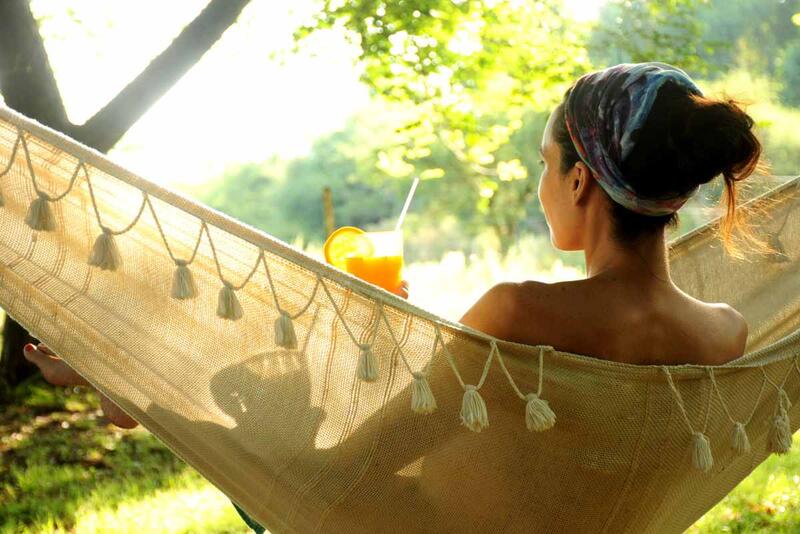
Have the courage to make the changes YOU deserve!

How to Rest
I’ve written about the importance of rest before. I’ve explained how essential it is for our wellbeing, not to mention productivity and success. But I’ve never told you how to rest.
I’ve written about the importance of rest before. I’ve explained how essential it is for our wellbeing, not to mention productivity and success. But I’ve never told you how to rest. It seems like a simple instruction, but I know from experience that rest doesn’t always come easily, especially if you’re naturally hard working and ambitious.
Rest Vs. Recovery
If we wait until our body forces us to rest due to stress, burnout or ill health, that’s not resting, it’s recovery. Instead of repeatedly pushing ourselves to our limits, we need to make rest a non-negotiable part of our lives. We need to live more restfully. But how?
The 7 Types of Rest
When you imagine yourself resting, what do you see? Many people believe rest relies on compete withdrawal. In other words, ‘doing nothing’. But this can be uncomfortable. It can leave you feeling listless, guilty or sad. To avoid this, we eschew rest completely. Napping or ‘getting a good night’s sleep’ is the other dominant image, but even when we’re getting a full 8 hours, many of us still feel exhausted. Why is that?
It's probably because rest has many forms. We need to figure out what we’re lacking and select the right kind of rest to address this specific deficit.
Dr Sandra Daulton-Smith, author of ‘Sacred Rest: Recover Your Life, Renew Your Energy, Restore Your Sanity’ identifies seven types of rest:
1. Physical
Physical rest can be passive (sleeping and napping) or active (restorative activities that improve the body’s circulation and flexibility such as yoga, stretching and massage).
2. Mental
Mental rest is the antidote to brain fog and poor concentration. It includes things like time blocking and taking breaks throughout your working day to improve your focus. Journaling and mindfulness can also provide mental rest, allowing you to empty your mind of nagging thoughts.
3. Emotional
Emotional rest is about having time and space to safely express your feelings. It means being honest and brave – saying what you really mean instead of what you think people want to hear.
4. Social
Unfortunately for the introverts among you, social rest doesn’t mean opting out or withdrawing from social situations! It’s closely linked to emotional rest because it involves spending time with people with whom you can be your authentic self.
5. Sensory
We’re bombarded with bright lights, flashing screens and background noise every day. It’s incredibly overwhelming so we need to make sure we’re taking regular breaks. Sensory rest can be as simple as closing your eyes for a minute or two or intentionally avoiding electronics at the end of every day.
6. Creative
Creative rest is about rekindling our sense of awe and wonder. Spending time in nature is one way to do this. It also includes enjoying the arts, listening to music and surrounding yourself with things that inspire you.
7. Spiritual
Spiritual rest is the ability to connect beyond the physical and mental and feel a deep sense of belonging, love, acceptance and purpose. This can be achieved through engaging in something greater than yourself such as prayer, meditation or community involvement.
Making Time for Rest
I get it, we all lead busy lives. When we understand rest in a more nuanced way, it becomes easier to strike the right balance between work, rest and play. You don’t need to find time to ‘do nothing’, you need to create space in your days for some of the restful activities outlined above.
One of the simplest ways to form a new habit is to add it to an existing one. For example, if you make yourself a cup of coffee every morning, use the time it takes to brew for a quick journaling session (mental rest). If you do the school run every day, consider taking a more scenic route through nature (creative rest). You could listen to some music while you walk too. If you usually head to bed with a good book, try adding some simple stretches before you climb in (physical rest). You could also make your bedroom an electronics free zone (sensory rest).
If You Do One Thing This Week…
Complete Dr Dalton-Smith’s online rest quiz to identify your ‘rest deficits’. Which forms of rest do you need to prioritise? Can you think of some small ways to incorporate these into your everyday?
Further Reading/Watching/Listening
- The Real Reason We’re Tired and What to Do About It
- The Nap Ministry on rest as resistance
- Embracing Radical Rest.
Val

